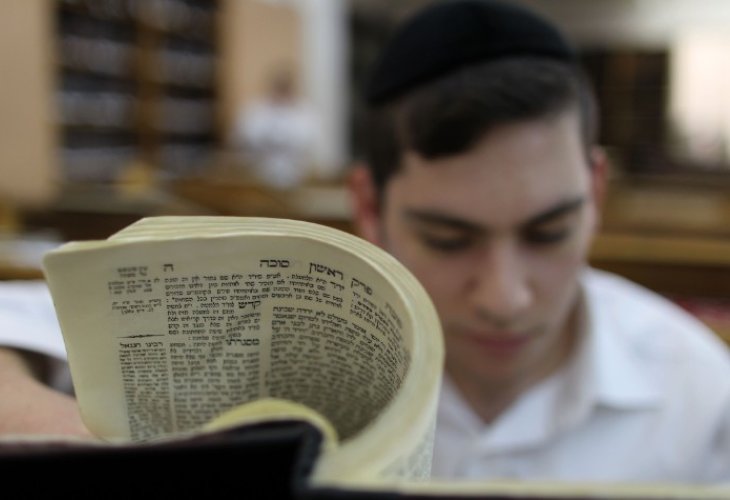Shabbat
Bathing on Shabbat: What’s Permitted and What’s Not
From cold showers to children's pools—navigating Jewish law on washing and hygiene on Shabbat
- |Updated

Can You Bathe on Shabbat?
Hot Water:
Water heated by a boiler or electric heater may not be used at all on Shabbat, not even for washing hands. If the water was heated by a solar heater (dud shemesh), opinions differ. Rabbi Ovadia Yosef (Yabia Omer, vol. 4, 34) permits using solar-heated water to wash one’s face, hands, and feet, though he notes that it's praiseworthy to be stringent, and some prohibit it entirely (see Minchat Yitzchak vol. 4, 44; Shevet HaLevi vol. 1, 94). Washing the entire body with hot water is only permitted for someone ill or in great discomfort (Shulchan Aruch Orach Chaim 326:1; Biur Halacha; Kaf HaChaim).
Cold Water:
For Sephardic Jews, it is permitted to bathe in cold water on Shabbat (Shulchan Aruch 326:1), though care must be taken not to wring out water from hair or towels. Liquid soap and shampoo may be used, but one must avoid rubbing hair too vigorously. For Ashkenazic Jews, the custom is generally to refrain from bathing, though in a case of significant discomfort, one may be lenient (Mishnah Berurah 326:21; Igrot Moshe O.C. vol. 4, 74; Minchat Yitzchak vol. 6, 32).
Warm Water:
There is a halachic debate regarding lukewarm water. Some authorities, including Chayei Adam and Mishnah Berurah (326:7), permit it as long as the water is not hot. Rav Ben Tzion Abba Shaul rules similarly (Or LeTzion, vol. 2, 35). Warm water is defined as 37°C (98.6°F) or lower, the temperature of the human body. If the water feels slightly cool or does not feel “perfectly pleasant,” it is considered lukewarm.
However, Rabbi Ovadia Yosef rules that even lukewarm water is forbidden, and one may wash only with cold water, though it is permitted to slightly temper the cold with a minimal amount of warm water (Halichot Olam, vol. 4, p. 210).
Public Facilities:
In hotels, hospitals, and other communal settings, water is often heated by electric systems, even during the summer. Therefore, hot or warm water in such places should not be used on Shabbat under any circumstances.
Practical Halachic Scenarios
Solid Soap:
There is a halachic dispute about using solid bar soap on Shabbat due to concerns of smoothing (memare’ach) or creating a new form (molid) (Shulchan Aruch 326:10; Mishnah Berurah; Ben Ish Chai, Yitro §3). Rabbi Ovadia Yosef permits it only in pressing situations and primarily for medical professionals without access to liquid soap (Halichot Olam, vol. 4, p. 108).
Tooth Brushing:
Ideally, one should avoid brushing teeth on Shabbat and use mouthwash instead. In urgent cases, brushing is permitted with the following conditions: use a soft-bristled brush designated for Shabbat, use only liquid toothpaste (some permit paste if necessary), and do not rinse the brush afterward; just leave it in the sink.
If brushing consistently causes gum bleeding, it should not be done unless absolutely necessary, and even then, it must be done very gently.
Brushing That Causes Bleeding:
If brushing is known to cause bleeding, it is considered an intentional benefit (nicha lei) and is forbidden. Even if the blood is thought to be beneficial (as some dentists suggest), it does not change the halachic status. Devices like water flossers follow the same logic: if bleeding is certain, they are prohibited; if it's uncertain, they may be used.
Immersing in a Mikvah:
Immersion in hot water is generally prohibited on Shabbat, even if the water was heated before Shabbat, due to concerns that people may heat water unlawfully (Shulchan Aruch 326:1). However, many allow immersion in lukewarm water for mitzvah purposes (e.g., before prayer), citing authorities like the Korban Netanel and Noda BiYehuda. Still, enjoyment from the warm water should be avoided (Avnei Nezer O.C. 526).
According to Rabbi Ovadia Yosef, even immersion in lukewarm water is not permitted; only cold water is allowed (Halichot Olam, vol. 4, p. 210).
Cold Mikvah and Discomfort:
One may not cause themselves undue suffering on Shabbat. The Mishnah Berurah (328:140) cites the Rambam, who rules that bathing in cold water on Shabbat is prohibited due to discomfort, since Shabbat is meant to be a day of pleasure. Still, for those who regularly immerse and would be more distressed by skipping it, immersion is permitted, even in cold water.
Bathing Children:
Children should not be bathed with water from a solar heater on Shabbat. However, if they are very sweaty or unusually dirty and uncomfortable, it is permitted to bathe them with water heated before Shabbat. Even those who are stringent with solar-heated water may allow it in cases of discomfort (Mishnah Berurah 316:5).
Toddler Pools:
Letting toddlers play in cold water outside on Shabbat is permitted, provided they are dressed in synthetic swimwear (e.g., nylon) to avoid the risk of wringing water from fabric. This is only permitted for children under age three; older children should generally be discouraged from using such pools due to concerns about Shabbat desecration. For Ashkenazic families, the custom is to prohibit this entirely (Mishnah Berurah 326:21).
Therapeutic Swimming for Rehabilitation:
Patients undergoing physical therapy that includes swimming should ideally avoid sessions on Shabbat. However, in pressing situations, leniencies exist, since therapeutic activity may override certain weekday-like behaviors (Shulchan Aruch 306:7; 328, Sefer Mitzvot Gadol). Special care must be taken not to wring out swimsuits or hair. The pool must also have defined walls, as required by halacha (Shulchan Aruch 339:2).

